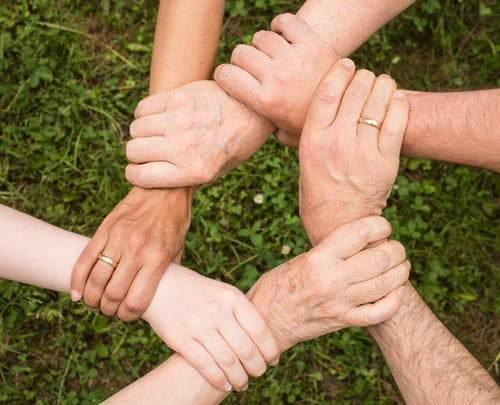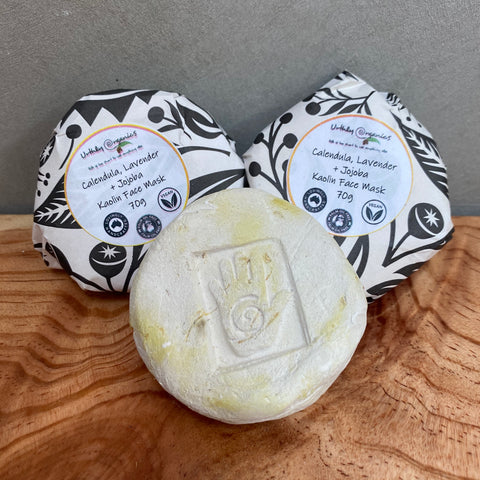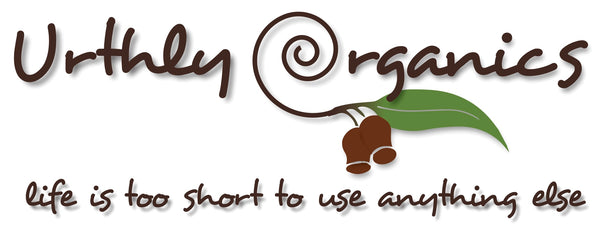
Social Sustainability: Ways to Improve Socially Conscious Shopping
Share
This is an ongoing series we hope to deliver at Urthly Organics as part of our Products with Purpose blog.
With the rise in consumer awareness of their social and environmental impact, companies must look to evolving their products to be as sustainable as possible. However, many businesses have instead begun to greenwash their products and customers.
‘Greenwashing’ [1] refers to the insincere and superficial display of concern towards environmental issues by organisations such as labelling items that take years to break down as ‘biodegradable’, sustainable palm oil and its derivatives, third party animal testing, and not paying workers a fair wage for manufacturing ‘eco-friendly’ products[2]. The use of branding can mislead the public into buying unethically.
Which makes one question, how do we know what we are buying is aligned to our values? The answer is not straight forward. Ideally, everyone would be a ‘conscious consumer’, whereby individuals base their purchasing decisions are based on the transparency and shared values of a company. However, for some people and situations, this is not always possible in every situation. This is where companies need to assist in providing the opportunity to buy ethically.
With our business aiming to provide some alternative to environmentally unsustainable products (namely skincare and cleaning), we believe that it’s important for us as people to hold a critical lens to what we are being sold. Here are some of the things we look for when making the conscious decision to purchase a product, ingredient, or service.

Greenwashing and Social Washing
Much like how greenwashing exaggerates and/or misrepresents the environmental impacts of a project or a company, social washing can occur when labour rights or human rights are falsely projected[3]. Examples of this include portraying an empowering feminist message to Western women, but not changing their manufacturing processes that exploit others[4]. This misrepresentation reduces the social sustainability of a brand and is often paired with environmental damage. Which begs the question, what does one do to stop buying into this?

Social Sustainability
‘Social Sustainability’ focusses on creating changes or preserving social phenomena to support current and future communities[5]. For businesses, it’s about ensuring community satisfaction, supporting local initiatives, and ensuring employees are treated with the respect they deserve. For consumers, it’s about understanding how the product impacts those beyond ourselves.
To assist in improving social consciousness, here are some ways to reduce the risk of buying into unsustainable practices.
Shop Local
Especially with the financial impacts of COVID-19, it’s more important than ever to support local economies. This can mean your local community store, small business, or an Australian-owned (or country of origin equivalent) (CoO) business.
There is an endless benefit to purchasing from CoO locally owned and/or made products. From a social standpoint, local businesses invest roughly 4 times more money into the community than larger companies and are 250% more likely to support local community initiatives[6].
From a consumer perspective, supporting local businesses also provides an opportunity for transparency[7]. Customer service is more likely to be by individuals working directly within the business rather than a third party, improving the information you can receive. This gives consumers the ability to weigh up the options of their purchase and make environmentally conscious choices based on their values.
Buy Locally Made
Aside from supporting local businesses, customers need to be aware of how a product is made. The manufacture of products can at times, be the most problematic socially and environmentally. Pollution, exploitation, excess resource consumption, and unsafe work conditions can be issues that are difficult to see. However, with customers wanting more understanding of supply chains, buying local CoO made is becoming increasingly popular[8]. Purchasing locally-made is environmentally a good option. The CO2 footprint is likely to be lower, the quality or uniqueness may be better, and you potentially have greater power as a consumer in improving the production process[9].

Support Your Community
Buying local provides not only supports jobs but provides the opportunity to know how employees are treated and how money is used towards initiatives businesses support[10]. Local businesses are generally more inclined to support local organisations, projects, people, or other businesses. Together, these provide a clearer snapshot of what a business is acting upon. In small areas like mine, one can usually ask around to see what places are best for staff and give back. This allows me to make an informed decision to support places that value their staff. In more metropolitan areas, it’s about noticing signs of inappropriate work treatment or researching the business.
In situations where you are unsure, some areas to focus on are turnover rate, noticing treatment by managers to workers, and reading workplace reviews[11]. These will allow you to make a more informed decision.
Research Business Transparency
Sometimes, local owned or produced does not apply to a situation. There are thousands of ethical businesses that are large or have operation processes overseas that are socially responsible. If in doubt, look for how the business expresses its values.
Socially responsible companies generally will be as transparent as possible. After all, they don’t have anything to hide and are making the world better. On top of this, some places provide reports on how sustainable a company is, such as the Ethical Fashion Report[12] or The Corporate Social Responsibility Guide[13]. Some companies will even have certification for being ethical[14], such as B Corp[15].
Ask
In all situations, the best thing to do if you’re unsure is to ask. Asking is the simplest way to understanding business values and how they are expressed. This allows you to have discretion based on what you believe to be socially fair and just.

Urthly Organics
It wouldn’t be appropriate nor transparent to complete this article without explaining the social impacts of Urthly Organics for our customers. At Urthly Organics, we wouldn’t be here if it wasn’t for the support of our communities. We take this appreciation into our employment, customer service, community support, and all aspects of our business. Some of the things we do include:
- Paying all of our employees are paid above award, liveable wage, with ongoing hours.
- Supporting multiple local charitable organisations by donating 90 soaps a month. These go typically to organisations combatting family violence, homelessness, and individuals experiencing displacement. We also fundraise and support other organisations as the opportunities arise.
- Getting to know our suppliers and stockists is important for us. Of some suppliers, we get olive oil from Neil, calendula petals from Sally, and fresh goat milk from Sarah. These are just a small few of the many amazing people who help us make our skincare. Then our stockists. Most of them are small businesses themselves with a passion for handmade and/or sustainable products.
- We support our locals. Personally, and professionally, we love buying local and supporting others. This is how we got here today. And how others thrive too.
- We encourage questions. If you want to know about our social responsibilities, please do not hesitate to ask.
I hope this provides some understanding of how to look out for social washing, as well as the importance of supporting others with your purchase. We hope you have enjoyed this month’s edition of our Products with Purpose blog.
References
[1] Kenton, W., via Investopedia (2020), ‘Greenwashing’: https://www.investopedia.com/terms/g/greenwashing.asp
[2] Green & Thistle (2020), ‘What is Greenwashing? Examples [2020]’: https://greenandthistle.com/what-is-greenwashing/
[3] Marsh, A., 2020, ‘Social Washing’ Is Becoming Growing Headache for ESG Investors‘: https://www.bloomberg.com/news/articles/2020-04-09/-social-washing-is-becoming-growing-headache-for-esg-investors
[4] Pruegl, E., 2019, ‘Feminism washing: are multinationals really empowering women?’, The Conversation: https://theconversation.com/feminism-washing-are-multinationals-really-empowering-women-120353
[5] ESG, 2020, ‘What is Social Sustainability’: https://www.esg.adec-innovations.com/about-us/faqs/what-is-social-sustainability/
[6] Locals4Locals, 2020, ‘Why shop locally?’: http://www.locals4locals.com.au/why-shop-locally/
[7] Barrett, S., 2015, ‘Back to the village – why consumers want to buy local’, SmartCompany: https://www.smartcompany.com.au/marketing/sales/back-to-the-village-why-consumers-want-to-buy-local/
[8] Murphy, P., 2020, ‘Australian Made: The pandemic has reignited the shop local movement’, AdNews: https://www.adnews.com.au/news/australian-made-the-pandemic-has-reignited-the-shop-local-movement
[9] Notely, 2019, ‘ Why it’s so important to buy Australian made’: https://notely.com.au/blogs/journal/why-it-s-so-important-to-buy-australian-made#:~:text=Buying%20locally%20made%20products%20shortens,with%20accountability%20on%20their%20processes.
[10]As per above. Notely, 2019, ‘ Why it’s so important to buy Australian made’: https://notely.com.au/blogs/journal/why-it-s-so-important-to-buy-australian-made#:~:text=Buying%20locally%20made%20products%20shortens,with%20accountability%20on%20their%20processes.
[11] Glass Door, 2020: https://www.glassdoor.com.au/Reviews/The-WorkPlace-Reviews-E891597.htm
[12] Baptist World Aid, 2020, ‘The COVID Fashion Report: A 2020 Special Edition of the Ethical Fashion Report’.
[13] B1G1, ‘Corporate Social Responsibility: The Ultimate Guide’, 2020: https://www.b1g1.com/businessforgood/csr-guide?gclid=CjwKCAjw0On8BRAgEiwAincsHA1Hq3tdCHRoqw7XBngl9slPhVr-CA1t-h0bAb-ygqswz-gxiX11DhoCY4oQAvD_BwE#Part-4
[14] Ecocert, 2020, ‘The key practices of the Corporate Social Responsibility’: https://www.ecocert.com/en/expertise/corporate-social-responsibility
[15] B Corp, 2020, ‘About B Corp’: https://bcorporation.net/about-b-corps?gclid=CjwKCAjw0On8BRAgEiwAincsHIG_UQKiIbh95UKQzuaTZI-ughrcr2eiDACy1uO8yRMNuXoaWL7Q1BoCGFAQAvD_BwE
